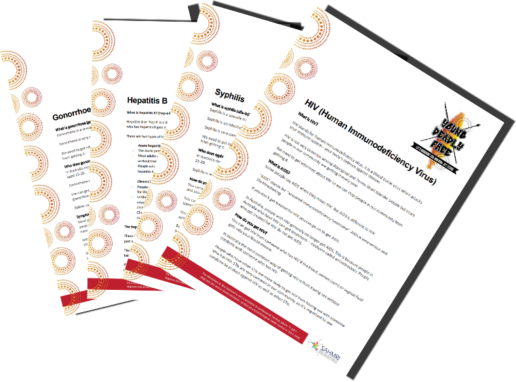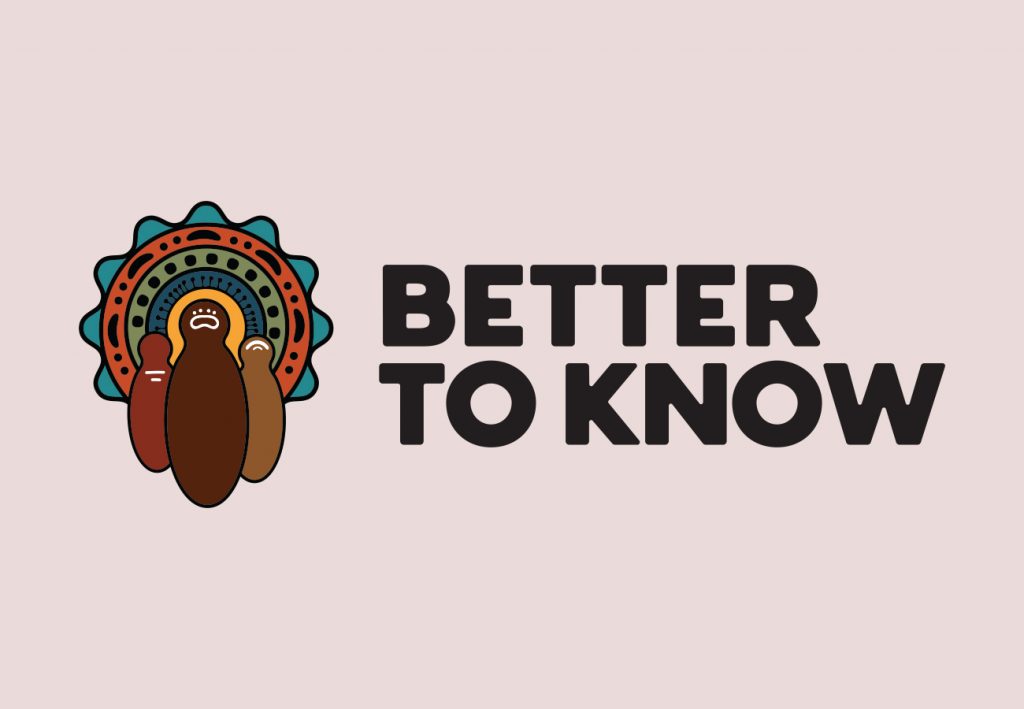What is a Blood-Borne Virus (BBV)?
A BBV is a blood borne virus — a virus you can get if the blood, semen (cum) or vaginal fluid from someone with that virus gets into your blood. This can happen during sex or by sharing drug injecting equipment.
HIV, hepatitis B and hepatitis C are BBVs.
There are also treatments for BBVs.
You can have a BBV and feel well, with no symptoms.
The only way of knowing you have a BBV is to get tested.
BBV Fact Sheets
Factsheets on each of the STIs and BBVs affecting young people in Aboriginal and Torres Strait Islander communities are available in two formats – a longer form, as well as a shorter form outlining “the basics”.
There are also Factsheets on what’s involved in getting tested for STIs and BBVs.
Click here for our factsheets about BBVs.

Blood-Borne Viruses Testing
Getting tested for an BBV is quick and easy.
As many BBVs do not have symptoms, regular testing (every 6-12 month) is an important part of sexual health and wellbeing. It’s free, confidential, and usually just a blood test.
BBV testing is about respecting yourself, your partner and your community. It’s all about being young deadly and free!
6-12 months
You should get an STI/BBV test every 6-12 months, even if you always use a condom – or usually do
FREE $0
STI/BBV tests are free at all bulk billing GPs and clinic, as well as your local Aboriginal Medical Service
100% Confidential
STI/BBV test result are private and confidential for those aged 16 years and older
Helpful Resources
Better to Know is a website for young Aboriginal and Torres Strait Islander men and women. It provides detailed information on STIs and BBVs, and on getting tested– in two sections, Men’s Business and Women’s Business. You can organise to be sent a reminder SMS to have a sexual health check. You can also use the website to notify recent sex partners that they need to have a sexual health check. This can be done anonymously – they won’t know that it was you that sent the message. The clinic can help you with this.

Young Deadly Free is a project by the University of Queensland Poche Centre for Indigenous Health (formerly the South Australian Health and Medical Research Institute). © UQ POCHE 2024